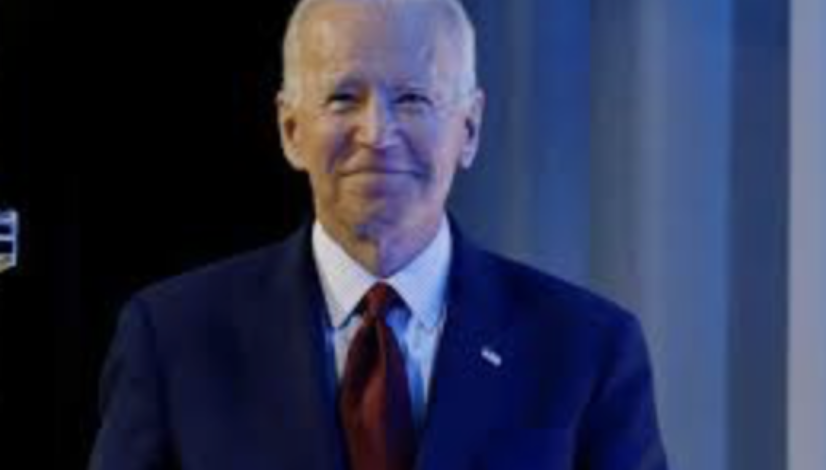Biden’s climate plan – Big, bold and borrowed? Front-runner’s plan plays catch-up with AOC, others

Joe Biden just rolled out a plan to tackle climate change, the second big policy offering of his campaign. In its ambitions and approach, the program looks a lot like others that have been presented by his rivals and by leading environmental concerns.
In fact, it looks so much like competing plans that the former vice president has been accused of plagiarism, again. Remember that Biden faced similar charges in 1988. Engaged in his first presidential run that year, he lifted parts of a speech made by U.K. politician Neil Kinnock, in which the Labor leader declared he was the first in his family to attend college. That factoid turned out to be true for Kinnock but not for Uncle Joe. His family had several college grads.
In the past, Biden apparently borrowed text from other politicians and also plagiarized parts of a research paper he wrote while at Syracuse University College of Law.
In other words, stealing other people’s work appears to be something of a habit for the man President Trump likes to call “Sleepy Joe.”
Most likely, the goof in preparing the climate position paper reflects the price Biden is paying for his late entry into the Democratic race. While Sen. Elizabeth Warren, D-Mass., and Sen. Bernie Sanders, I-Vt., have had months to work up policy initiatives – which in Warren’s case are as plentiful as dandelions in August – Biden is scrambling to get up to speed.
It appears that in their haste to respond to charges that Biden was not taking climate change seriously, his team cut and pasted together a patchwork quilt of ideas taken from numerous sources. Instead of confirming Biden’s history of plagiarism, the slip may instead reveal that his opponents are correct. He does not take climate change seriously.
That said, Biden’s climate policy is carefully crafted, not necessarily to reduce emissions, but to appeal politically to nearly everybody and offend nobody. His plan promises to reach net zero emissions and 100 percent clean energy by 2050, taking 20 years more to achieve that milestone than the Green New Deal. Sleepy Joe indeed.
Biden enthusiastically joins the nuclear arms race of spending that the Democratic climate competition has become. He slaps a $5 trillion price tag on his program, way behind the $9 trillion of other people’s money that Washington Gov. Jay Inslee is prepared to spend, but matching Beto O’Rourke’s program.
Of course, all proposals pale in comparison to the Green New Deal, which has been estimated to cost as much as $93 trillion but that encompasses far more than just climate management.
In his proposal, Biden pays homage to the progressive wing of his party by lauding Rep. Alexandria Ocasio-Cortez’s costly GND, as have many of the other Democrats running for the Oval Office, calling it a “crucial framework.”
He kowtows to Obama nostalgia by noting his plan goes beyond “the Obama-Biden administration platform,” reminding us anew (as if we could forget) of his history with “Barack.” He massages environmental warriors by pledging to not take campaign contributions from those dastardly fossil-fuel providers (you know, the ones that heat our homes and make our cars run) and promising to “stand up to the abuse of power by polluters who disproportionately harm communities of color and low-income communities.”
He mollifies those few Democrats worried about our nation’s $22 trillion debt by saying only $1.7 trillion of his $5 trillion 10-year plan will come from the federal government, with local authorities and corporations kicking in the rest. He also claims the $1.7 trillion would be financed by reversing the GOP tax cuts on businesses. That’s a puzzler, since hiking the 21 percent rate back to 27 percent or 28 percent is estimated to yield only around $700 billion over the next decade.
The actual policies that Biden promises to enact are mostly conventional and small-bore, such as making sure the federal government purchases only zero-emissions vehicles (does Tesla make tanks?) or making government buildings energy efficient. He wants to bring together our nation’s top talent to speed new renewable energy technologies, though some might say the quickest way to stifle innovation would be to ensnare our brightest scientists in the federal bureaucracy.
On one idea Biden should be congratulated. He proposes using “small modular nuclear reactors at half the construction cost of today’s reactors.” Though it is not size that makes nuclear investment prohibitively expensive today but rather cumbersome environmental opposition, expansion of zero-emission nuclear power would be a positive step.
Several weeks ago, Biden was hammered when a campaign worker said he was searching for a “middle of the road” position on climate. That apostasy did not sit well with the left wing of his party, for whom mitigating the effects of carbon emission has become not just a policy but a creed. No price tag is too high, no loss of competitive advantage too great, no harm to our workers is too costly to justify taking a middle path.
The issue describes perfectly the jam Democrats are in.
Joe Biden is supposed to be the candidate who can appeal to progressives like Sanders and Warren who want to redistribute the nation’s wealth as well as those traditionally Democratic blue-collar workers who defected to President Trump in 2016.
Creating a climate plan that satisfies both those groups is a tall order. Biden’s proposal and indeed all plans promising to end our use of fossil fuels will drive up power costs, make our industries less competitive, and will cost jobs. That’s why union leaders like the AFL-CIO criticized the GND, calling it “unrealistic” and likely to harm workers.
Recent elections, like the one in Australia, show that even voters professing alarm at climate change will put jobs ahead of mitigating emissions. Democrats and Joe Biden would be smart to take note.
Published on Foxnews.com




